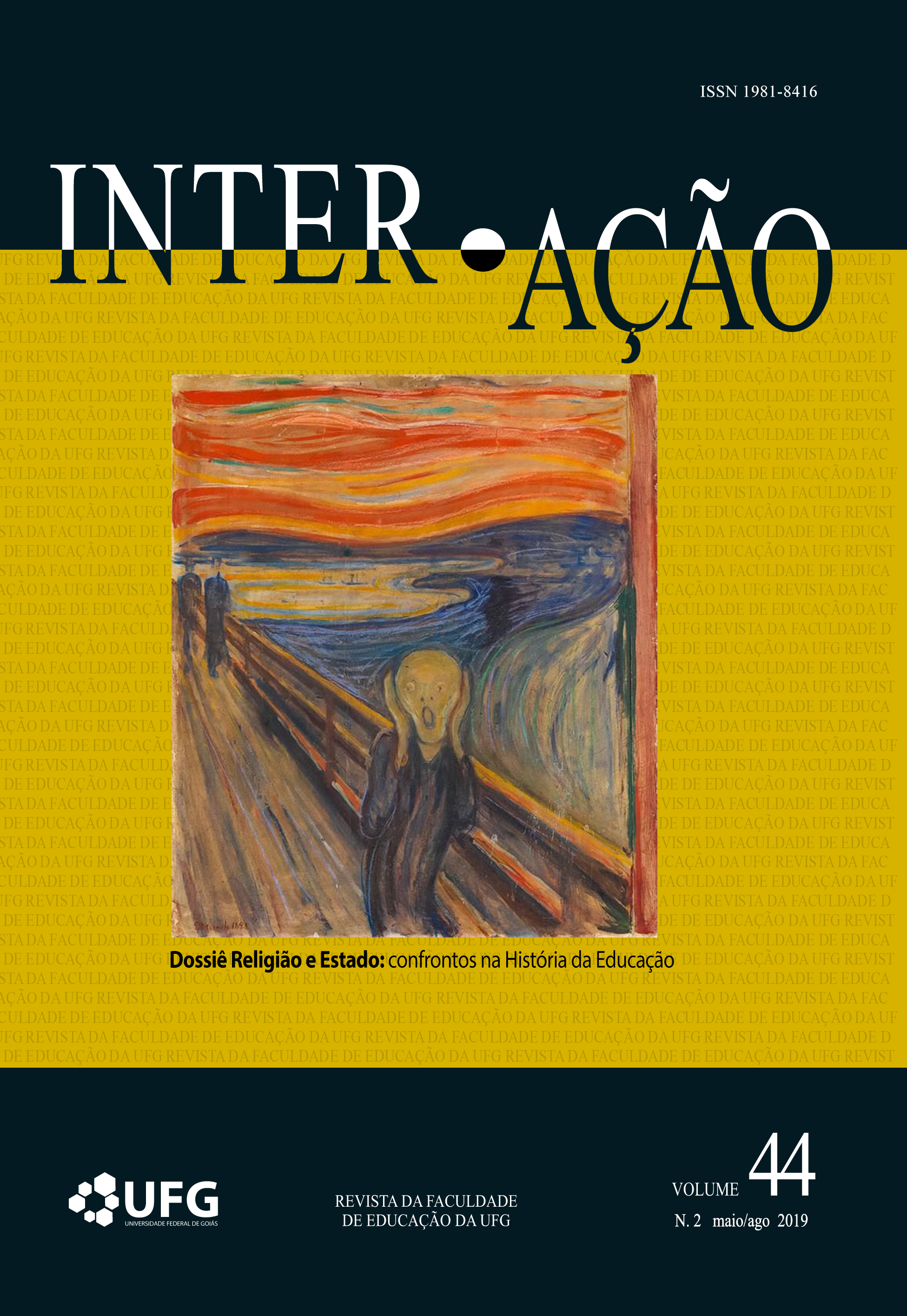A CARIDADE NA AUSÊNCIA DA CIDADANIA: ESCOLARIZAÇÃO CATÓLICA GRATUITA DE CRIANÇAS POBRES NO RIO DE JANEIRO NA TRANSIÇÃO IMPÉRIO-REPÚBLICA
DOI:
https://doi.org/10.5216/ia.v44i2.56705Abstract
A fim de compreender o papel da educação católica na sociedade brasileira é importante voltar para a instrução de crianças pobres na Igreja. O conceito de caridade deve ser expandido do principio tomista da justiça distributiva para o conceito de educação e de instrução. A escolarização de pobres fundamenta-se em documentos da Igreja e em práticas ligadas, ou não, à hierarquia católica. Houve escolas paroquiais, de Irmandades leigas, de asilos de órfãos, de ordens religiosas masculinas ou femininas, além da participação de pobres nas escolas particulares. Esse artigo baseou-se em jornais das décadas de 1870 a 1920 e na literatura disponível. Na perspectiva da temporalidade histórica de Paul Ricoeur, busca relacionar a “tradição” católica e a introdução da educação escolar voltada para os desprovidos de meios próprios nas ausências do Estado no Rio de Janeiro.
Downloads
Published
Versions
- 2026-01-21 (2)
- 2019-08-12 (1)
How to Cite
Issue
Section
License
Copyright (c) 2019 Marco Aurélio Corrêa Martins

This work is licensed under a Creative Commons Attribution-NonCommercial 4.0 International License.
Inter-Ação uses the Creative Commons Attribution 4.0 License for Open Access Journals (Open Archives Initiative - OAI) as the basis for the transfer of rights. Open access means making documents available on the Internet free of charge, so that users can read, download, copy, distribute, print, search, or link to the full text of documents, process them for indexing, use them as input data for software programs, or use them for any other lawful purpose, without financial, legal, or technical barriers.
Authors publishing in this journal agree to the following conditions:
1) Authors retain copyright and grant the journal the right of first publication, with the work simultaneously licensed under the Creative Commons Attribution License, which permits redistribution of the work with attribution and first publication in this journal.
2) Authors are permitted to enter into additional, separate agreements for non-exclusive distribution of the version of the work published in this journal (e.g., for publication in an institutional repository or as a book chapter), with attribution and first publication in this journal.
3) Authors are permitted and encouraged to publish and distribute their work online (e.g. in institutional repositories or on their home page) at any time before or during the editorial process, as this may generate productive changes as well as increase the impact and citation of the published work.















